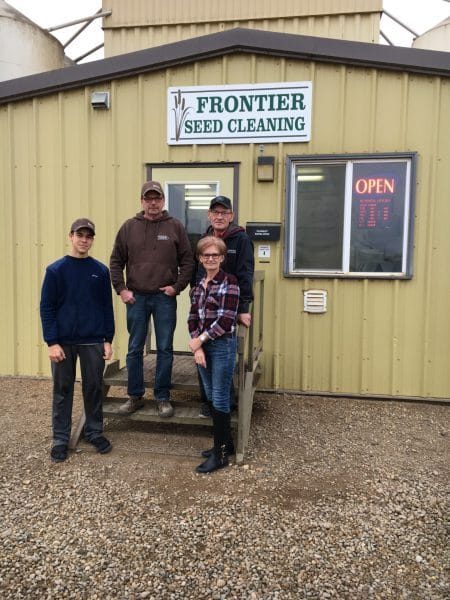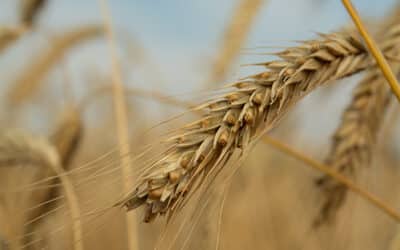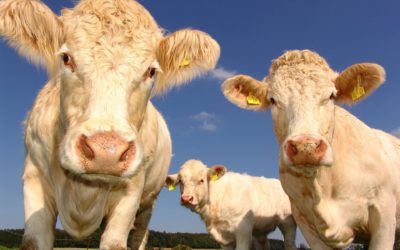For the first time in its near 40-year history, Frontier Seed Cleaning Co-op Ltd. has processed more than one million bushels of seed and grain, surpassing all expectations of Ken Wiebe, the plant’s manager.
“We did almost 1.1 million bushels. It’s unbelievable. Every year you figure you can’t do any more, but it keeps increasing,” says Wiebe. “It’s a good feeling, but sometimes it’s very hectic considering the capacity — if you divide 300 to 350 bushels per hour by 1.1 million bushels that’s a lot of hours.”
Over the past five years, the plant has doubled its volume. In 2013, the plant processed roughly 500,000 bushels, and each year thereafter, increased bushel numbers by at least 100,000. One reason the plant topped one million bushels is its storage capacity.
Last summer, Wiebe installed two additional storage bins, increasing storage volume by about 7,000 bushels, bringing the plant’s total storage capacity up to 30,000 bushels. He also upped the plant’s operating times: during peak seasons, it runs around the clock. Wiebe figures about 3,400 hours went into processing 1.1 million bushels of oats, wheat, canola, peas, barley and lentils.
However, it’s the region’s increasing production acres driving the plant’s boom. “Our acres have increased. They’ve probably tripled over the last two to three years. A lot of new land is being put into production,” he says.
Also central to the plant’s processing growth is the organic industry. According to Wiebe, about 30 to 40 per cent of all organic producers in Alberta are growing crops in his region. The organic industry has significantly boosted production in the area for the last five years. As a certified organic facility since 2013, approximately 50 per cent of the plant’s processing can be attributed to this sector.
“The organic industry is big here,” says Wiebe. “This is what makes us money. We got our plant certified in 2013, and it’s been picking up every year.”
The plant currently cleans about 300,000 to 400,000 bushels of organic products per year, in addition to 20,000 to 30,000 bushels of conventional oat seed for distribution to organic producers.
Big Plans
Established in 1980, and sitting on two acres near the northern Alberta hamlet of La Crete, the plant has reached its processing capacity, says Wiebe, and he has no plans to increase the volume it can handle. “I’ve done everything I can do with this plant,” he says. However, Wiebe has got big plans for the future.
The ink has only just dried on the legal paperwork for the purchase of seven acres to house a new seed cleaning facility on the outskirts of La Crete. The plant manager hopes to break ground in three to four years for a state-of-the-art seed cleaning facility.
“When we do it, we want to go all out. We want to build a big, modern facility. That’s the goal we’ve set for now,” says Wiebe. He figures it’ll take a year from the start of construction to cleaning the first bushels of seed and grain.
Besides a brand-new building, Wiebe also looks forward to new, high-tech equipment, such as a colour sorter, and computerized operations.
“This is world-renowned oat country. We do lots of oats here, but then wild oats become a problem. We need a colour sorter. I can only take out a limited amount of wild oats — you need a colour sorter for the rest. That’ll be super exciting,” he says.
Presently, everything is as it should be at the plant: Wiebe has it running like a well-oiled machine. “Right now, we’re operating pretty smoothly. I don’t foresee any challenges unless the capacity gets way out of hand. Every year you think you can’t do more, and then you throw in another 100,000 bushels on top. It’s the struggle we’ll have for the next three to four years,” he says.
The only other potential pitfall is a downturn in organic markets, something Wiebe doesn’t dwell on. Instead, he remains focused on the tasks at hand, such as separating crop combinations.
The season begins to heat up for the plant manager in August, when farmers start combining. And, because intercropping is so popular in the area, separating oats and peas or barley and peas are fall projects on Wiebe’s to-do list.
Processing peas begins in August and lasts until the end of October. Then the Frontier crew starts on the rest of the seed cleaning. During the busy seasons, up to seven other staff members are on the payroll.
However, no matter the time of year or how many staff members are employed, an important focus of the business is customer care. According to Wiebe, establishing and maintaining good relationships with the producer community is important, especially because of the plant’s size.
“Our capacity is so small that we all have to cooperate. I have very good relationships with my farmers. I bend over backwards for them, and they for me. That’s very important because of the plant’s size and processing volume.”





